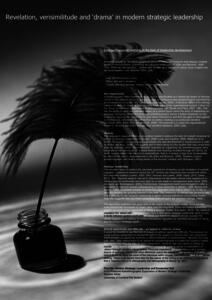Autoethnography offers leadership study unique opportunities as it allows the leader to become central to the research process; satisfying both an ontological and epistemological argument for an increased focus on the ‘self’ (Spry, 2001; Humphreys, 2005). It therefore differs from ethnography in its ability to move on from the wide-angle view of the organisational context (‘other’) to the “focus on the inner, vulnerable and often resistant self” (Boyle and Parry, 2007: 186). This has the ability to place the individual leader as a central figure within the story of leadership experience (Kempster, 2010). Co-produced autoethnography places a further emphasis on the subject by requiring the researcher to write about themselves and then be open to interrogation by themselves, reflectively, as well as their co-author, creating a co-produced narrative ‘sandwich’ (Ellis, 2004; Ellis and Bochner, 2000). The potential is to allow the organisational leader to “reveal a discovery” through their narrative (Saldana, 2003: 224).
Downloads
Downloads per month over past year
Downloads per month over past year for
"S_Gibbs_Colloquium_Poster.jpg"
Downloads per month over past year for
"GibbsPosterpdf.pdf"

![Poster [thumbnail of Poster]](https://eprints.hud.ac.uk/11088/1.hassmallThumbnailVersion/S_Gibbs_Colloquium_Poster.jpg)

 CORE (COnnecting REpositories)
CORE (COnnecting REpositories) CORE (COnnecting REpositories)
CORE (COnnecting REpositories)